Sharpshooter is a game-changing feat in BG3, turning your strong archers into devastating missile launchers. That said, it can feel intimidating to build a Sharpshooter from the start. Here are a few excellent builds that show off this potent feat.
The best builds for Sharpshooter in BG3
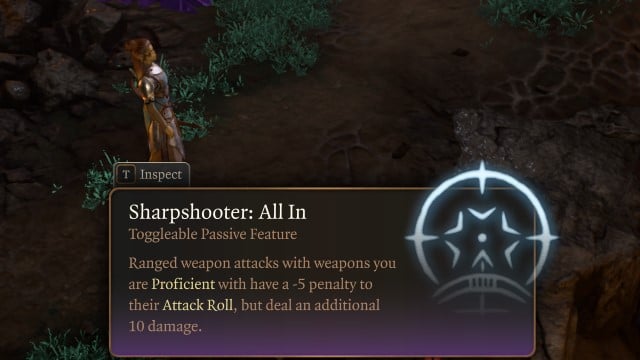
Sharpshooter builds in Baldur’s Gate 3 utilize multiple ranged attacks to boost damage, and should mix in utility skills to make it easier for you and your party to deal damage. The feat can make it easier to miss priority targets, so knowing when to toggle it is an important skill for maximizing the usefulness of your Sharpshooter. Still, the feat is so useful for boosting damage that these three builds make it worthwhile.
Is the Sharpshooter good in Baldur’s Gate 3?
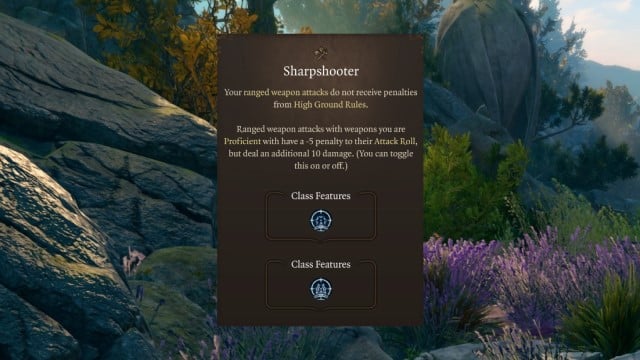
Yes, Sharpshooter is a fantastic feat in BG3. The ability to add 10 to your damage, even at the cost of five accuracy, is critical to late-game ranged damage builds. Every bow shot can deal 20 to 30 damage thanks to Sharpshooter, giving your ranged character upward of 60 damage per round at the cost of accuracy.
Sharpshooter and Great Weapon Master share a lot of similarities. But unlike Great Weapon Master, it is easier to negate the downside of Sharpshooter—the minus-five to attack—thanks to the Archery Fighting Style. This style, available to Fighters and Rangers, adds two to your attack roll, meaning you’ve essentially already halved the penalty to Sharpshooter. Mix in the various attack-boosting magical items in BG3, and you’ll easily hit enemies more than 50 percent of the time.
But, because Sharpshooter dumps your accuracy, you should find alternative ways to reach 20 Dexterity if possible. Usually, that means putting two feats into Ability Score Improvement. Alternatively, you can use the Mirror of Loss, the Graceful Cloth, or Auntie Ethel to inch your way up to that cap.
It’s also important to know when to toggle it off. While that +10 to damage is juicy, some enemies like Steel Watchers can really be a thorn in the side of a Sharpshooter. There’s nothing wrong with using your first shot on something like a Slaying arrow or a Restraining spell like Ensnaring Strike before toggling Sharpshooter on and getting advantage on your attacks.
Man of Actions: Fighter 6/Rogue 4/Ranger 2
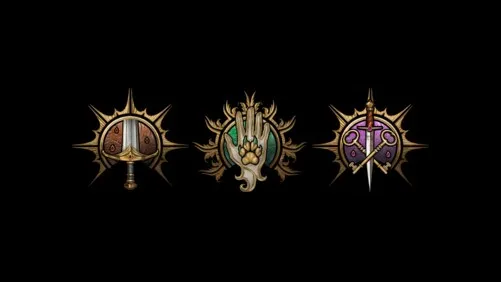
- Benefits: Very high burst damage, heavy armor proficiency, consistent main and offhand damage, and a great mix of actions.
- Downsides: Lose the Fighter’s third attack, reliant on Hand Crossbows, and the Ranger multiclass misses out on a feat.
- Important feats: Ability Score Improvement (Dexterity).
- Best Magic Gear: Ne’er Misser, Hellfire Hand Crossbow, Fetish of Callarduran Smoothhands, and Shade-Slayer Cloak.
The Man of Actions focuses on the Thief Rogue‘s Fast Hands ability, alongside the Hand Crossbow’s innate ability to be dual-wielded, to hit four times per turn. This allows the Sharpshooter feat to hit four times per round, or eight times when Hasted and Action Surging. Alongside the Fighter’s Archery Fighting Style and Ranger’s Two-Weapon Fighting style, this build is capable of putting out a lot of damage every single turn.
The Fighter’s subclass is up to personal preference. Champion is a slight improvement to damage with no resource to monitor, while Battle Master requires more careful control over your character’s build, but has more guaranteed damage and crowd control. We prefer Battle Master, but the right mixture of critical hit gear, like the Shade-Slayer Cloak, could make Champion more enticing.
Ranger is mostly here for access to Two-Weapon Fighting, but you can also use it to grab a Familiar through Beast Tamer, like the Crow, to mess with enemy AI. We also recommend you use Bounty Hunter to get a surprisingly solid Ensnaring Strike, even without much investment into Wisdom. You can also put two more levels into Fighter to get a bonus feat, but we recommend going with Ranger to improve your damage instead.
Overall, your goal with this build is to use your party to set up advantage on ranged attack rolls, and then deal a ton of damage alongside Sharpshooter. With basic Hand Crossbows, this build can easily put out 1d6+15 damage with each of their four shots. Combined with the magical Hand Crossbows you can find, like the Hellfire Hand Crossbow, you’ll find your accuracy and damage skyrocketing.
Because the Hellfire Hand Crossbow focuses quite a lot on being Invisible or Hiding to inflict the Burning status, you can use items like the Shade-Slayer Cloak or the Fetish of Callarduran Smoothhands to better prepare for battle before landing hard on your foes. Overall, this build can do massive, consistent damage, but suffers just a touch in terms of utility.
Skyrim Stealth Archer: Rogue 7/Ranger 5
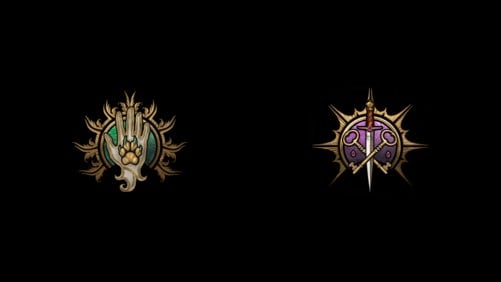
- Benefits: Exceptional start-of-combat damage and a high critical hit rate.
- Downsides: Lower damage after the first round of combat. Limited feat access.
- Important feats: Ability Score Improvement (Dexterity).
- Best Magic Gear: Gontr Mael, Dark Justicar Helmet, and Shade-Slayer Cloak.
The Stealth Archer utilizes the Assassin and Gloom Stalker archetypes to deal incredible damage during the first round of combat before settling into a consistent but lower amount of damage per round afterward. Once our first round of combat is up, we utilize Cunning Action to consistently reactivate the additional crit chance given by items like the Dark Justicar Helmet and Shade-Slayer Cloak.
You only get a single feat—other than Sharpshooter—and fighting style with this build. We recommend getting your Dexterity as high as possible, as well as taking Archery as your Fighting Style. As for your Favored Enemy and Natural Explorer, we recommend Keeper of the Veil and Beast Tamer. Consider Rogue Expertise based on your party composition, but with four options, taking ones like Stealth, Sleight of Hand, and Survival can be very useful for a standard party.
Your goal with this build is to consistently begin combat by surprising your opponents. If you have a feeling that a group of foes will not be open to talking, don’t be afraid to dome them with an arrow first. You strongly benefit from starting fights, especially from stealth or invisibility. As a result, gear that heightens your critical hit rate—like Shade-Slayer Cloaks, the Dead Shot, or Knife of the Undermountain King—is recommended. You want every shot to count, especially the one that applies Sneak Attack.
While the Dead Shot bow gives more critical hit rate, try to use the Gontr Mael once per day. Celestial Haste is a huge buff, making it very easy to deal massive damage alongside Sharpshooter in a given turn. Then, you can swap to a different weapon or utilize the Gontr Mael’s plus-three to attack rolls to compensate for Sharpshooter’s accuracy debuff.
Sonic Arrows: Bard 8/Ranger 4
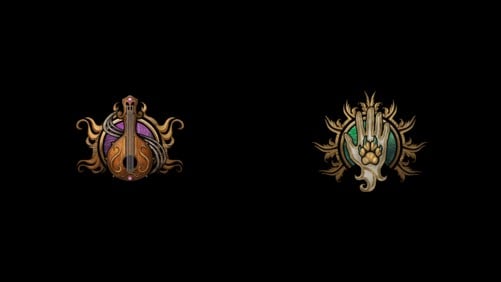
- Benefits: Surprising spellcasting benefits and good accuracy.
- Downsides: Lower damage than other options with a reliance on Hand Crossbows.
- Important feats: Ability Score Improvement (Dexterity), Ability Score Improvement (Charisma).
- Best Magic Gear: Hellfire Hand Crossbow, Ne’er Misser, and Legacy of the Masters.
This unique build uses the Bard College of Swords’ Two-Weapon Fighting Style, alongside the Ranger’s spellcasting and Hunter subclass, to deal solid damage while retaining access to the Bard’s impressive spell list.
The Bard College of Swords is notable for the Two-Weapon Fighting Style and access to Extra Attack, allowing Bards to deal good damage with Hand Crossbows. That said, the Flourish feature of the College of Swords can be difficult to use while enabling the Bard’s normal support-oriented gameplan. Be careful when spamming it, as you can quickly run out of Bardic Inspiration.
Your second class can be either Ranger or Fighter, as long as it has access to the Archery Fighting Style. We prefer Ranger for the extra spellcasting levels and easy access to Heavy Armor proficiency at any time, though the Fighter’s Action Surge is absolutely worth considering.
Unlike the other builds on this list, the Bard’s spell list can be very powerful with a high enough Charisma level. For that reason, we recommend improving Charisma through feats and the Birthright item. Then, you can use spells like Hypnotic Pattern to distract large swathes of enemies while you focus fire on a specific target.
As for items, other than Birthright, getting a pair of strong Hand Crossbows is key. The Ne’er Misser and Hellfire Hand Crossbow are consistent and powerful. The Legacy of the Masters is a great glove to cover up your patchy accuracy while further boosting your high damage per shot. Utility Rings and Amulets, like the Amulet of Restoration and The Whispering Promise, can help you keep your party healthy for emergencies. The Whispering Promise also buffs your attacks, improving your accuracy even further.
Others Asked
Which weapon type is recommended for Lae'zel's build in Baldur's Gate 3?
Lae'zel's build recommends two-handed weapons, specifically suggesting the use of a Halberd for optimization.
What spell do Baldur's Gate 3 players find universally useful for all classes?
Players find the Misty Step spell universally useful for all classes.
How do the 'Great Weapon Master' and 'Sharpshooter' feats enhance a Fighter's damage output in Baldur's Gate 3?
The 'Great Weapon Master' and 'Sharpshooter' feats enhance a Fighter's damage output by providing a +10 to damage rolls for two-handed and ranged weapons respectively, while accepting a minus five to attack rolls. These feats offer a significant damage increase, especially when combined with other abilities and high attack roll chances.


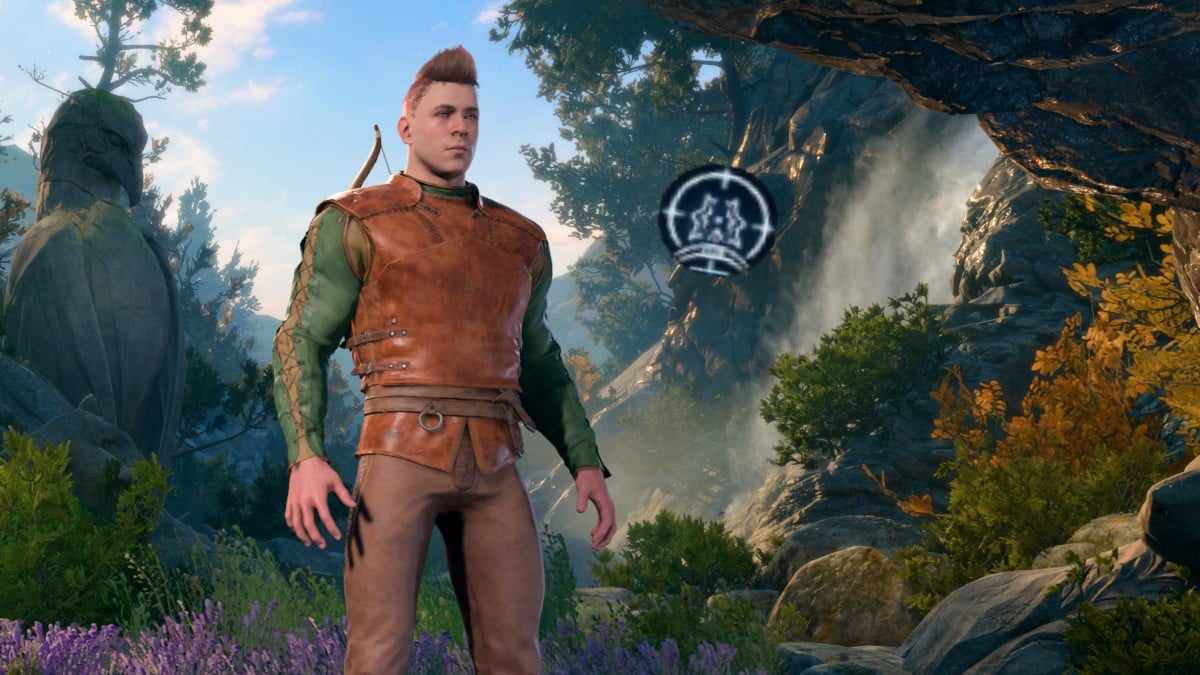
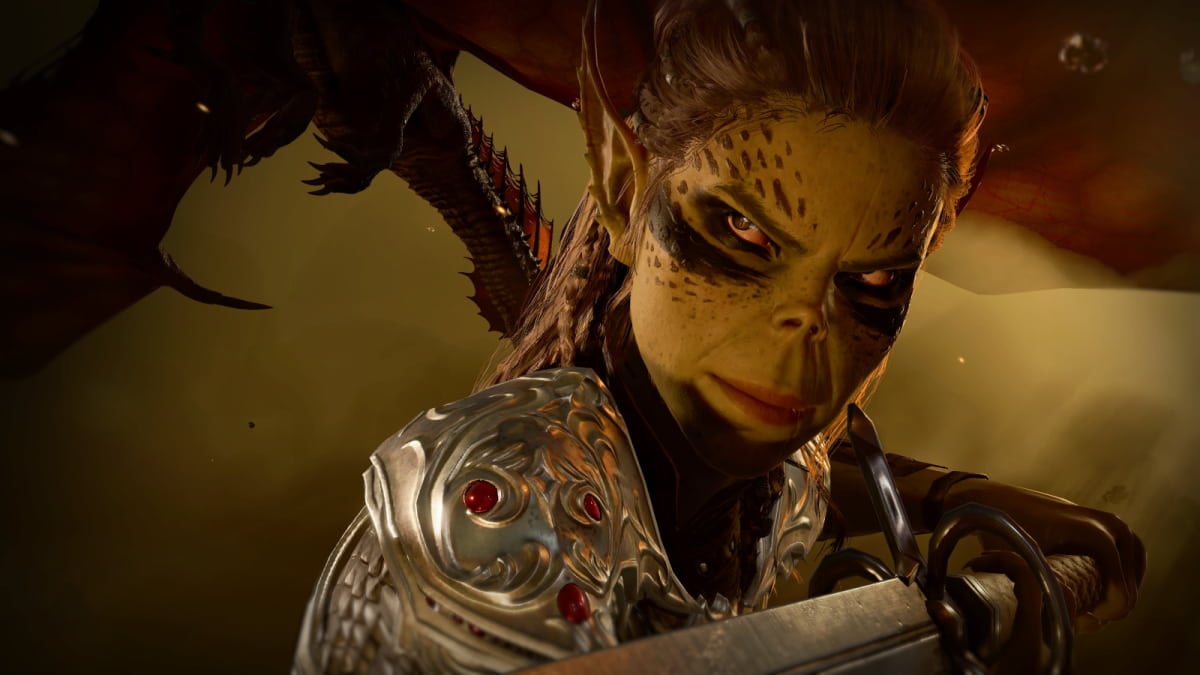
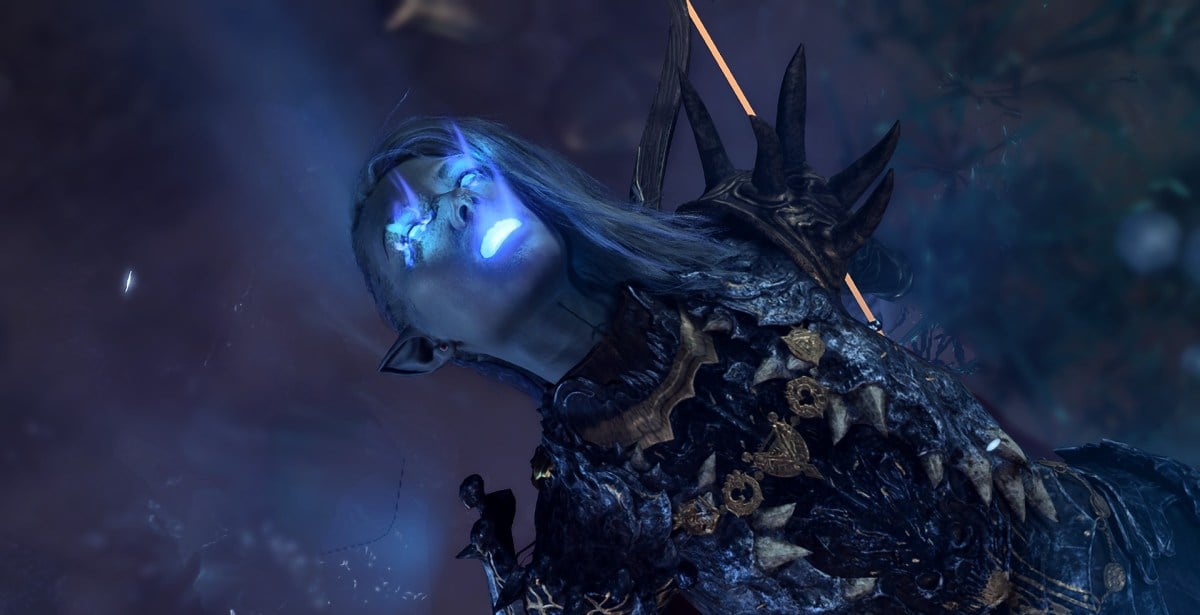
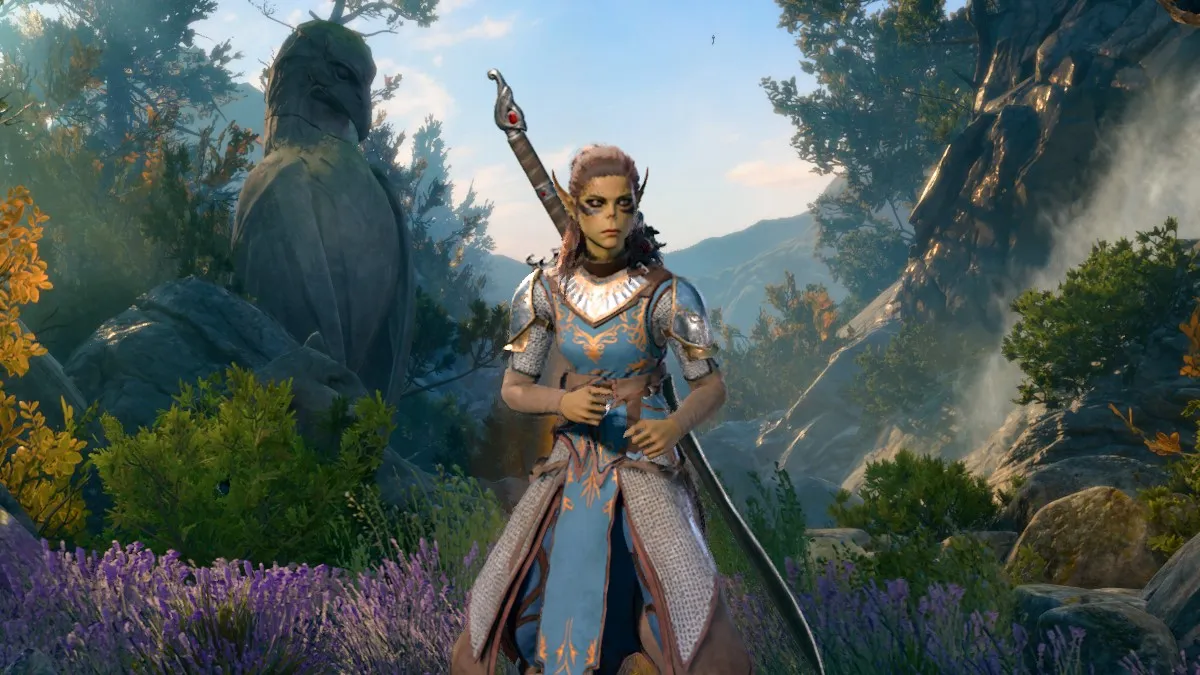
Published: Jan 14, 2024 07:02 am